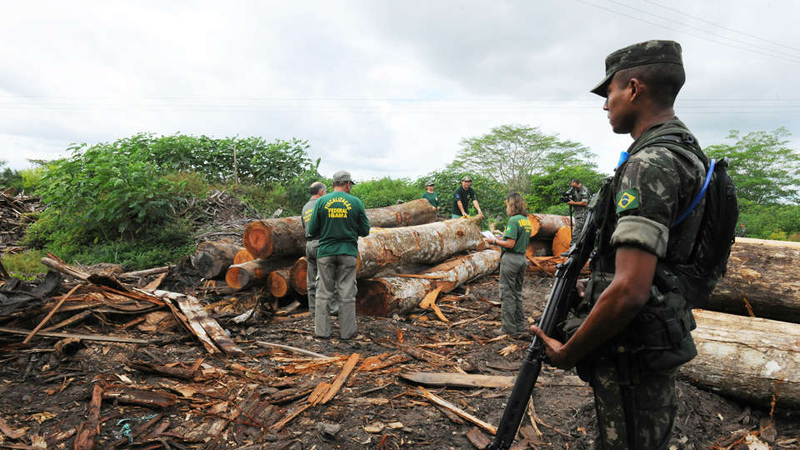Brazil’s greenhouse gas emissions grew 3.5% between 2014 and 2015, independent analysis showed on Thursday.
Driven by a surge in forest clearance, the increase came as the economy contracted by 3.8%, in one of South America’s worst ever recessions.
The figures come from a monitoring system set up by Climate Observatory, a network of 40 civil society groups.
“The data show that Brazil had a very distinctive phase of emissions cutback between 2005 and 2010, and that we’ve been walking in circles ever since,” said Tasso Azevedo, who coordinates the initiative.
Comment: Brazil forest clearance is rising in a recession – that’s worrying
While emissions from the energy sector dipped 5.2%, as fuel use fell and renewables advanced, destruction of valuable carbon-storing trees accelerated.
The area of Amazon rainforest cleared jumped by nearly a quarter to the highest rate in four years, according to the National Institute for Space Research.
“Deforestation spiked in 2015 and it’s probably going to rise again in 2016. Who benefits from that? Only those who destroy the forests illegally, while society and climate pay the price,” said Carlos Rittl, executive secretary of the Climate Observatory.
Following a recent senate move to subsidise coal power, Rittl warned there was no guarantee emissions from energy would continue to fall.
“The energy emissions are down right now, but there’s a huge risk they’ll increase again after the recession is over,” he said. “The country still invests heavily in fossil fuels – with a Congress trying to open a door to coal investments and shove us back to the 19th century.”
Weekly briefing: Sign up for your essential climate politics update
At a time when many countries are growing their economies while curbing emissions, Brazil is going in the opposite direction.
It is an uncomfortable position two weeks before the Paris Agreement enters into force, setting tough limits on global warming.
Brazil has pledged to cut greenhouse gas emissions 37% from 2005 levels by 2025 and eliminate illegal deforestation by 2030. All countries are expected to periodically ratchet up ambition to meet the Paris goals.
“We need a drastic change in our development path so that [the Paris Agreement] becomes more than words on paper, but this is just not happening,” said Rittl.
